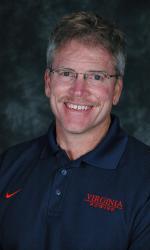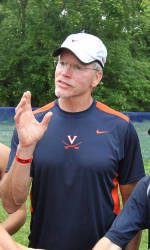An inspiring guest post by a writer I respect and enjoy reading – Timothy Dalrymple
*
By Marta Hummel Mossburg
Rowing is not a sport for our times. In an age where even the president thinks it’s OK to snap a selfie at a funeral, the concept of finding oneself through losing oneself is oxymoronic.
But as rowers know, the transcendence that comes from pushing your legs and your back and your arms harder than you ever thought possible because you can’t let the person in front of you down and the person in back of you can’t let you down is life transforming, and not just for rich kids who went to East Coast prep schools.
In Daniel James Brown’s 2013 bestselling the “Boys in the Boat” – the movie rights to which have been sold to The Weinstein Company – he writes movingly of the 1936 University of Washington team that beat Ivy League rowing royalty and went on to best Germany and Italy to win gold in the 1936 Berlin Olympics in front of Adolf Hitler. At the heart of his story is Joe Rantz, a Washington oarsman abandoned by his family at 15 during the Depression, plagued by self-doubt, and so poor he wore the same tattered sweater day in and day out.
His is one great story in a sport whose self-tempering qualities could help to reshape a current crop of college students whose inflated sense of leadership and ability nowhere matches their skills.
 The life of Kevin Sauer, a modern day Joe Rantz, is another.
The life of Kevin Sauer, a modern day Joe Rantz, is another.
Kevin, 60, the women’s varsity rowing coach at the University of Virginia, is one of the best collegiate coaches – and men – you’ve never heard about. Twenty years after he took over the women’s club team when the former coach committed suicide, he’s transformed a program that rowed out of a boathouse with a dirt floor and no electricity or water into a national powerhouse in contention for the ultimate prize – the NCAA championship – each year. Eight of Kevin’s crews have been crowned national champions and Virginia is one of only six schools to win the NCAA Championship (Brown, California, Harvard, Stanford and Washington are the others). His record is even more impressive given that the number of schools offering rowing has exploded in the last 20 years because of Title IX – federal legislation requiring gender equity in education.
And that’s before you learn his story – something he does not readily volunteer and that most of his rowers and former rowers, even those who have known him for two decades like myself, rarely know in full. The part he does share is his Christian faith. Every one of his rowers knows his priorities: God, his family, his rowers – in that order.
Like Joe Rantz, Kevin’s early years were the kind that most people do not recover from.
A native of Indiana, at four his parents divorced and both remarried multiple times, battling addictions to alcohol until their deaths – his mother in 1994 and father in 1997. Kevin left home at 15 and bounced around at his grandparents’ and cousins’ homes to avoid the chaos of his family life. One of his two half brothers, Brett Grunder, died of alcohol and drug related issues in 2011. The other, Christopher Grunder, is serving a 26-year sentence for theft, kidnapping and rape at Morgan County Correctional Complex, a maximum security prison in Tennessee. “Sometimes I look back and I don’t know how I made it,” said the married father of two grown children and grandfather of three whose most swarthy word is “dang.”
At that was not his only personal setback.
In 1986, his youngest child, Megan Rose, died at 10 months of Leigh’s Disease, an extremely rare neurometabolic disorder with no cure. Kevin held her as she died – and still can’t talk about her without crying. What comforts him is the image he saw at her death – a white shroud with outstretched arms. “It was Jesus, coming to take Megan home,” he said.
He didn’t always believe. His wife Barb and her family did, though, and at 28 he woke up at 1 AM and realized he wanted to ask Jesus to be his savior. He told Barb, then called a friend who had been talking with him about faith and drove to a Baptist church 15 minutes later. “I got dunked that night,” he said.
His beliefs weren’t always appreciated.
When he arrived at Virginia in 1988, the men called him “The Preacher” for two years, he said, because he wouldn’t tolerate their rampant swearing. “It was just awful. Totally old school Virginia.”
“They treated the women like crap – the guys called the women ‘boxes,’” said Kevin. “I said, ‘No, that ain’t happening. If I hear that one more time, ‘first I’m going to pummel you, and then I’m going to kick you off the team.’ In those days I could’ve.”
“When I think about making the switch from coaching men to women, that might have been the seed,” he added.
And then on a dark morning in November 1993 with the fog hovering over the Rivanna River like a veil, Kevin started coaching women’s rowing for good.
It wasn’t by choice. John Preston, the Virginia women’s club coach and my coach at the time, didn’t show for practice and told a teammate that morning, “I’m not well.” Hours later we found out he had taken his life. Kevin adopted the team that day, meeting with each of us individually in the days after in what must have been an excruciating process. He says only, “It was a tough time.”
We mourned John, 26, who was working toward a masters in history at the University of Virginia, by training harder than ever and losing more than ever, so inwardly focused we thought the size of our quadriceps could make up for the hole in our hearts. We lost the man who made us think it was normal to drive 10 hours to sleep on a floor of a community center because we had no money for a hotel – and then expect us to win. We lost a man who called the romantic interest of a team member to inquire why he didn’t ask her out; a man who loved music and literature and who would bring us dog-eared copies of used books he thought we’d like; a man who would show up battered to practice Monday mornings from attacking a mountain on his bike over the weekend; and one who seemed so rich intellectually and so alive. No one could replace his tall lanky self and we didn’t want anyone to, much less the machine of a man everyone called K-Train, known for his brutal workouts, his biceps and his bluntness.
But we didn’t know Kevin yet. Right away he told us his priorities: God, his family, and us – something he still imparts his rowers – but in the months to come those of us who rowed for him then saw a man as committed to each of us as a father. He could have earned a degree in psychology from the hours he logged counseling us outside of practice.
And then there was practice itself, which he ran for both the men and the women in the 1993-1994 seasons. “When I became a coach myself after college, I would often think of this when those long winter days in New Hampshire had me in the erg (rowing machine) room from morning until night and my throat would get hoarse. I’d think about how I’d seen someone do this to the nth degree for two full teams, certainly I could do it for one,” said Molly McHugh, the co-captain of the team at the time.
 Kevin, who considers running 10 miles a day off from training, lived up to his reputation for tough workouts and ungilded assessments of individual performance. Unlike Lord Grantham on “Downton Abbey” who seeks to protect his oldest daughter from reality after the death of her husband, Kevin asked us to choose life from the day he became coach. He didn’t tolerate excuses for not showing up to practice and no one had a safe seat in the boat. Unless you were in the hospital, documented – as in he had visited you there, you had to be present. He expected the same of himself. He’s missed one day of practice to sickness in 37 years of coaching, to chicken pox when he was 37.
Kevin, who considers running 10 miles a day off from training, lived up to his reputation for tough workouts and ungilded assessments of individual performance. Unlike Lord Grantham on “Downton Abbey” who seeks to protect his oldest daughter from reality after the death of her husband, Kevin asked us to choose life from the day he became coach. He didn’t tolerate excuses for not showing up to practice and no one had a safe seat in the boat. Unless you were in the hospital, documented – as in he had visited you there, you had to be present. He expected the same of himself. He’s missed one day of practice to sickness in 37 years of coaching, to chicken pox when he was 37.
And good scores on the rowing machine meant nothing if Kevin thought you could do better. “Kevin doesn’t play politics, he doesn’t play favorites, he doesn’t play anything. He has a vision of excellence and expects people to meet that vision – no shortcuts, no excuses,” said Brigid Ganley, who graduated from University of Virginia in 1996.
Lindsay Shoop, who won a gold medal in the Women’s Eight at the 2008 Olympics, got the same treatment years later. The first time she dropped her time substantially on a 2,000 meter ergometer test, a key benchmark for evaluating rowers, she said, “I was so excited to go tell Kevin, and when I told him, he smiled and said only, ‘There’s so much more.’ At first I was a little taken aback,” she said. “But I carry it with me to this day to remind myself to never set limits.”
His methods paid off. After a losing first season, we won the NCAA championship in a four in the spring of 1995 in our first race as varsity athletes for the University of Virginia. The memory of that race, when life was so unbearably full and whole, still has the power to infuse even the most mundane and despairing days with a sense of purpose. The rest is a long string of successes for Kevin.
In just his second full season in 1997, his Varsity 8 – the premier boat in collegiate rowing – finished fourth at the NCAA championships. In 2012 his Varsity 8 won the NCAA championship and over the past eight years his team has finished in the top-six in the nation every year. This year Virginia placed fifth. He was named ACC coach of the year for the 10th time this spring and fifth consecutive year and during his tenure two of his rowers, Shoop and Melanie Kok, earned Olympic medals. 2014 marks his 27th year coaching rowing at Virginia and 38th overall.
Multiple teams have tried to lure him away over the years, including Cornell University, which called him two weeks after he first arrived in Charlottesville in 1988 and offered to double his salary, but he stayed.
“Why did I make that decision? I don’t know,” Kevin said. He sees it as “Another reason the Lord wants me here… and I’ll stay as long as He wants me to.”
He insists the “kids bring energy back to me” and has no plans to retire yet. “It’s not even work for me,” he says of coaching. “I look around the reservoir and I say ‘nice office.’”
He hasn’t changed much in 20 years. He can’t do daily public weigh-ins anymore, but he still doesn’t allow profanity and doesn’t want to know if one of his rowers is in a sorority.
He just wants to win, as always. Of this season, he said, “We should be in the hunt – every year that’s the goal, be in the hunt.”
Would that we all viewed life so clearly.
 Marta Hummel Mossburg is a writer who lives in Maryland. She graduated from University of Virginia in 1995 and rowed for Kevin Sauer from 1993 to 1995. Marta also had a blog on Patheos called “The Pandemonium Files”.
Marta Hummel Mossburg is a writer who lives in Maryland. She graduated from University of Virginia in 1995 and rowed for Kevin Sauer from 1993 to 1995. Marta also had a blog on Patheos called “The Pandemonium Files”.














